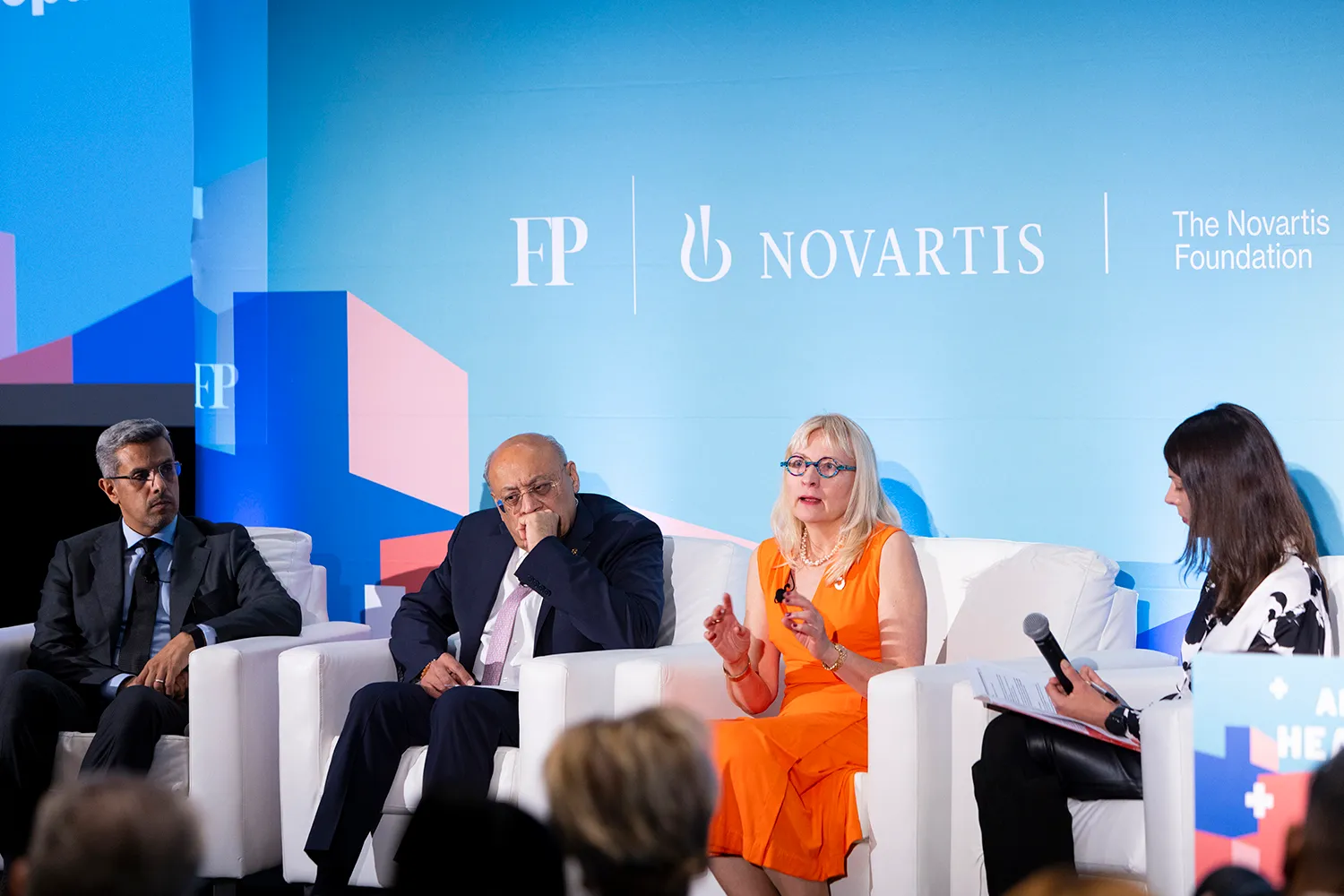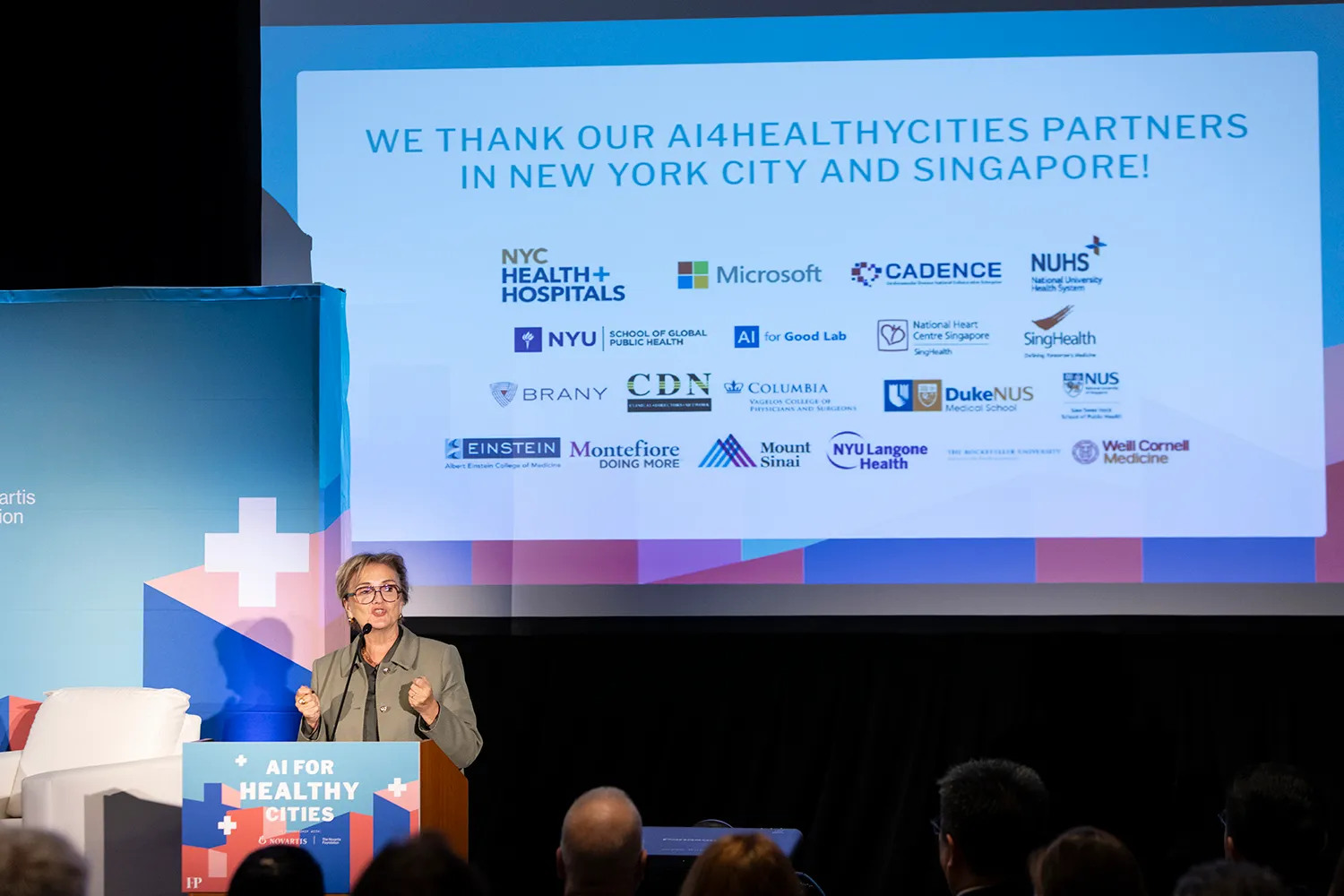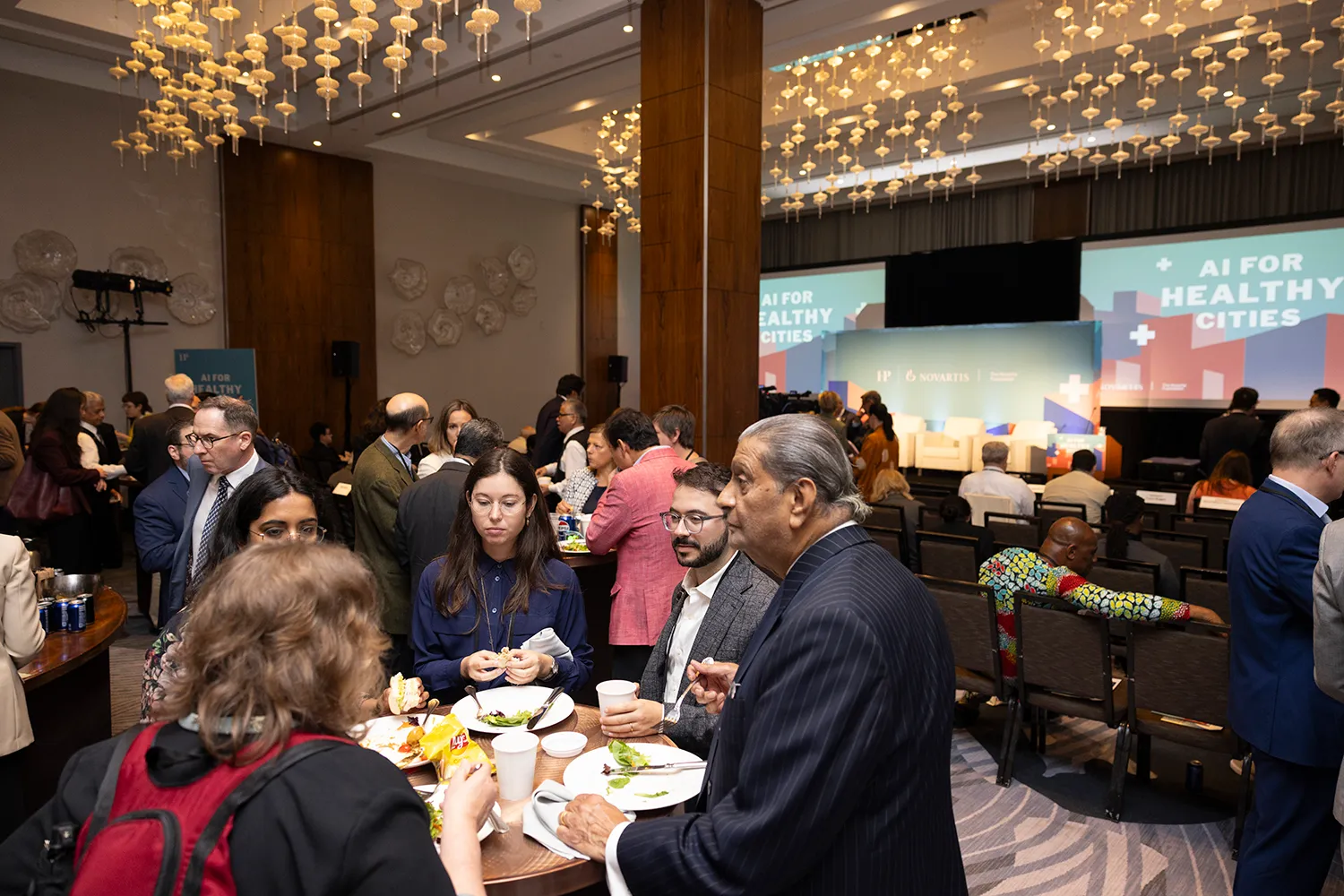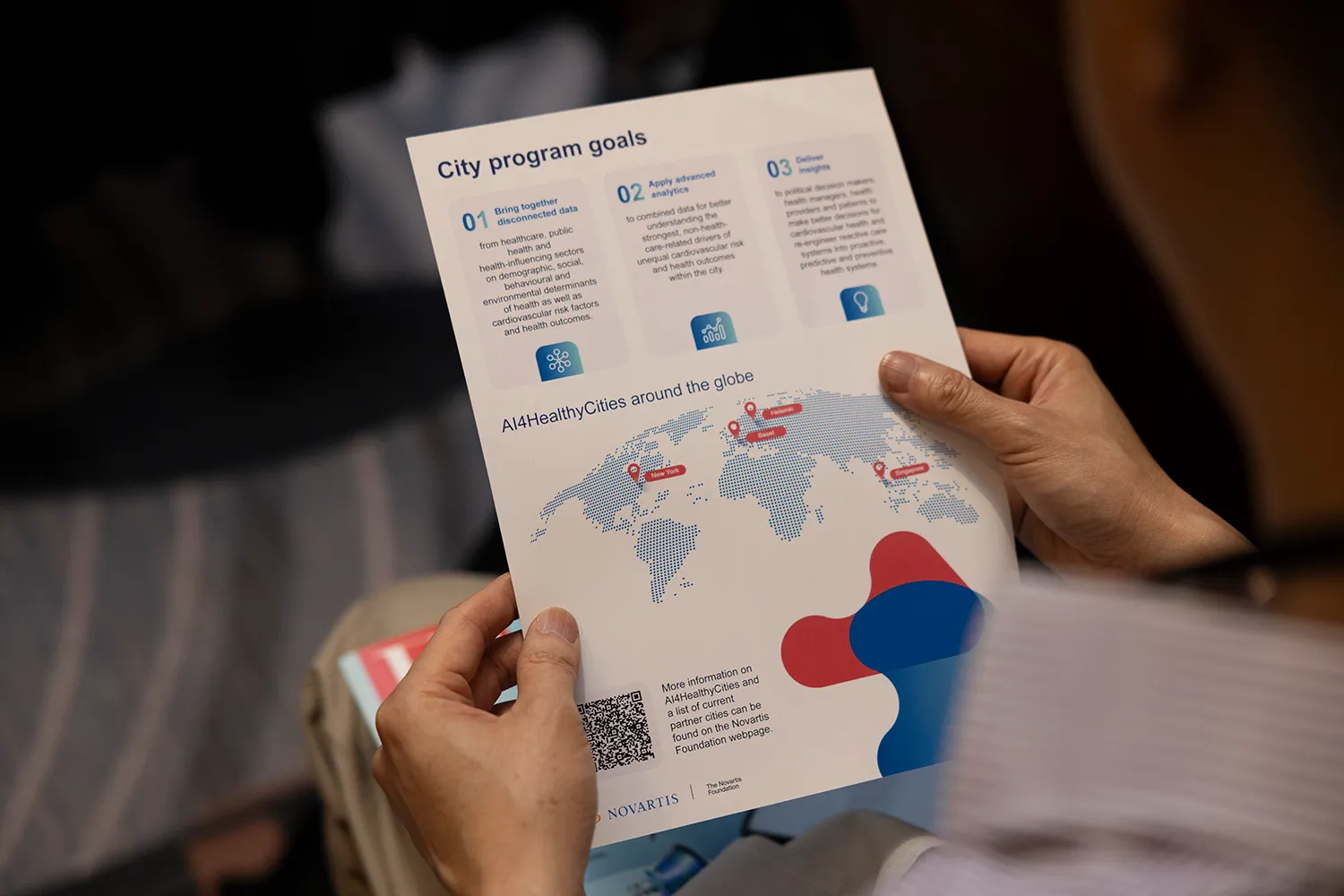AI for Healthy Cities
Health Equity Through Precision Population Health
An event synthesis report produced by FP Analytics, in partnership with the Novartis Foundation
October 2024
Today, roughly 55 percent of the world’s population lives in urban areas, with that number anticipated to approach 70 percent by 2050. Increased pollution and stress, limited access to quality food and physical activity, and rising health inequities threaten population health outcomes. However, cities also generate vast amounts of data that, if properly harnessed, can provide critical insights for translation into decision-supporting urban and health-planning tools. They represent well-defined geographies to pilot interventions that are inclusive of a range of stakeholders and inform local and regional decision-making and efforts to scale interventions elsewhere around the world. Amplifying new research that can help inform policy and bolster health outcomes, the Novartis Foundation and Foreign Policy convened an event, “AI for Healthy Cities: Health Equity Through Precision Population Health,” on the sidelines of the 79th United Nations General Assembly.
The event showcased progress from the AI4HealthyCities Initiative, an innovative effort demonstrating how incorporating big data and artificial intelligence can strengthen analytical capabilities and the value of integrating that capacity into the health infrastructure of major cities, currently deployed in New York, Singapore, Helsinki, Basel, and Lisbon. The pioneering initiative leverages data from within and beyond the health sector for four key analytical purposes: (1) identifying determinants of cardiovascular population health, (2) quantifying the impact of these determinants, as well as their interactions, (3) identifying ways in which changing these determinants can impact cardiovascular outcomes, and (4) informing secondary prevention by analyzing drivers across the continuum of care. By collecting and more comprehensively analyzing a wide scope of health and health-related data, AI4HealthyCities highlights deep inequities that manifest in cardiovascular health outcomes, creating the basis for impactful, effective population health interventions.
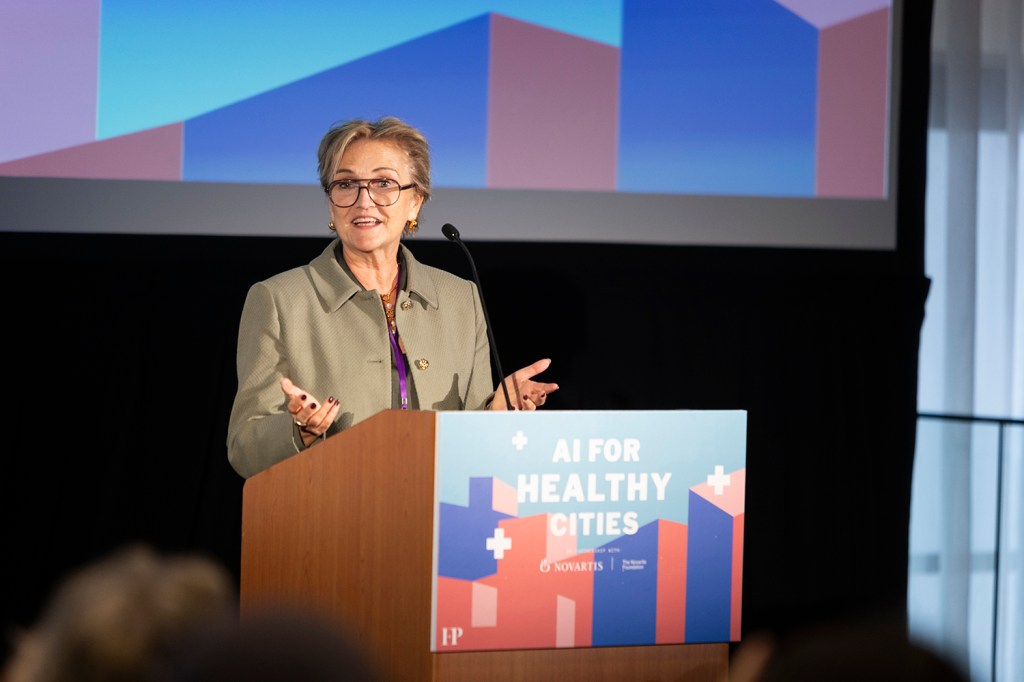
As Dr. Ann Aerts, Head of the Novartis Foundation, noted to the event participants in her introductory remarks, AI4HealthCities represents an “ambitious journey” to harness the full potential of AI and big data, with cities leading the way. As microcosms of the global community, cities can be labs for research and data generation to help leaders and decisionmakers better understand the range of factors contributing to health outcomes, including the social determinants of health that are shaping population health and access to care. With the advent of granular, real-time data accessible through integrated health dashboards, cities can explore new policy ideas and redefine the scope of health interventions, elucidating the potential of concepts like precision population health. Instead of applying blunt approaches to public health interventions — or making decisions based on data released in annual intervals — cities are exploring the potential to tailor interventions and resource allocation to specific neighborhoods and population segments based on dynamic, timely data. These insights have the potential to target interventions, address health-related inequities, and improve health outcomes — with learnings applicable to cities and regions around the world.
Cities Are at the Heart of the Matter
As Dr. Ashwin Vasan, the 44th commissioner of health for New York City, noted in an article for Foreign Policy in May 2024, “cities are the canaries in the public health coal mine,” a message he reiterated while discussing AI4HealthyCities. Amid demographic shifts increasing density in urban areas, health-related challenges in cities are becoming increasingly complex and multi-faceted — with an increasing urgency to more accurately understand and address the range of factors contributing to health outcomes and allocate limited resources in a more efficient and effective manner. Cities can be laboratories for innovation, pilot programs, and advanced learning to inform public health best practices. When acute public health challenges arise, or long-term trends wax and wane, cities can shift and adapt, translating a mix of national, subnational, and local health guidance into context-attuned action on the ground. As a result, there are sizable gains to be won by equipping cities with cutting-edge data-collection and -analysis tools, upskilling policymakers on evidence-based decision making, as well as by giving cities a louder voice in global public health discussions.
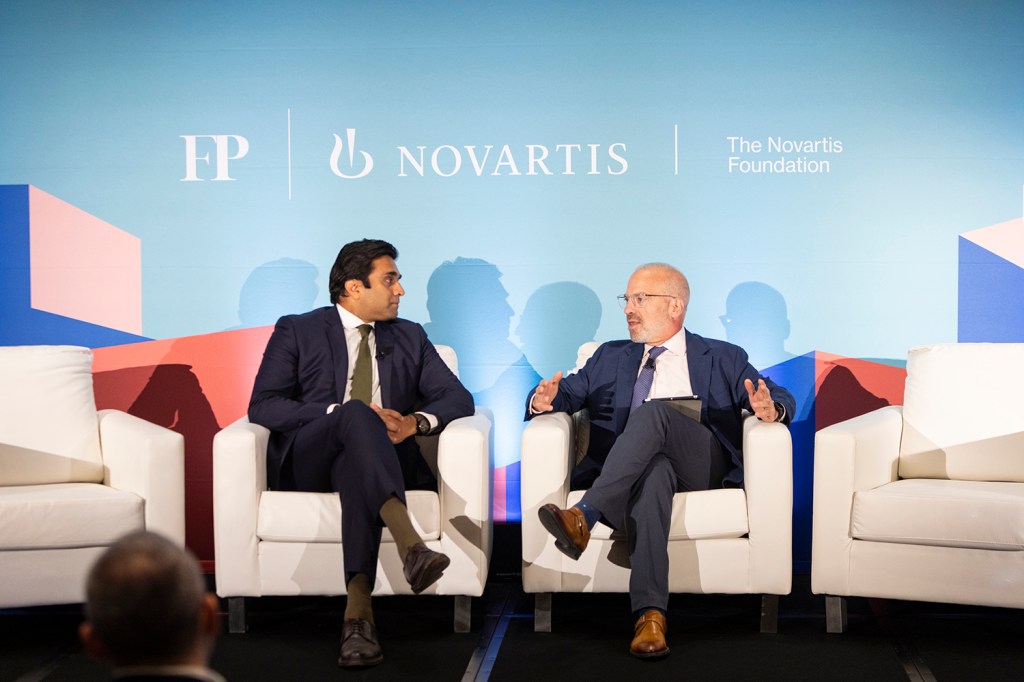
Participants
Dr. Ashwin Vasan, 44th Commissioner of Health, City of New York
Moderated by Andrew Sollinger, Publisher and CEO, Foreign Policy
Key Takeaways
- Cities need to be elevated and empowered in public health discussions. Cities are often under-represented in international and public health fora despite being primary agents in health care response and well-situated testbeds for health care innovation. While there has been some positive momentum, such as New York City’s invitation to participate in the World Health Assembly in recent years, more efforts are warranted. For example, cities could be given spots on the executive boards of major multilateral institutions such as the World Health Organization or World Bank, giving a greater voice to cities in policy processes.
- Health data must not be treated as an afterthought. While banks can seamlessly access real-time data and share it with one another and users, systems for the collection and sharing of health care data are often far less developed and dynamic. In the frenetic months of the COVID-19 pandemic, for example, Dr. Vasan recalled important health data being communicated through rudimentary spreadsheets. As the informational foundation of the global health response, governments and health systems need to invest in more capable data systems. Effective, right-sized interventions rely on adequate data of sufficient scope and the tools with which to analyze and share it.
- At the city level and beyond, factors influencing cardiovascular health, such as race, wealth, and social class, must be better understood and accounted for in policies, programs, and investments. Socio-economic and environmental factors such as the built environment, economic stability, and access to education are known to influence cardiovascular health but remain poorly addressed through public health responses. By better accounting for the social determinants of health, cities and other entities can more effectively respond to critical health challenges. Such improved accounting requires new ways of collecting, organizing, and analyzing health data, as well as refreshed thinking to capture the scope of real-world factors influencing cardiovascular health.
A Tale of Two Cities: Insights from AI4HealthyCities in New York and Singapore
Cities like New York and Singapore, two that are in the AI4HealthyCities initiative, are making strides mapping and evaluating the social, environmental, and economic determinants of health. As part of this effort, Microsoft, an AI4HealthyCities partner, found that models based on these determinants in U.S.-wide census tract–level data can be used to predict whether New Yorkers stand to suffer from diabetes or hypertension. Their work showed, for example, that diabetes prevalence could largely be associated with four key factors: (1) use of SNAP benefits, a proxy for income status, (2) a lower level of educational attainment, (3) living alone after age 65, and (4) lacking access to broadband. Weill Cornell Medicine, in partnership with Microsoft, has corroborated these relationships and employed advanced analytics through the INSIGHT Clinical Research Network to link social determinants data with individual health data. Their research has connected predictive analysis with patients’ health experiences, as well as identified patient populations that are at risk but may be undiagnosed. A group of academic institutions in Singapore spearheaded by CADENCE, which seeks to harness tech innovation for cardiovascular research, is similarly analyzing a combination of real-world clinical and prospective academic data to decipher which socio-economic and behavioral determinants like obesity, smoking, and salt intake drive cardiovascular disease in the country.
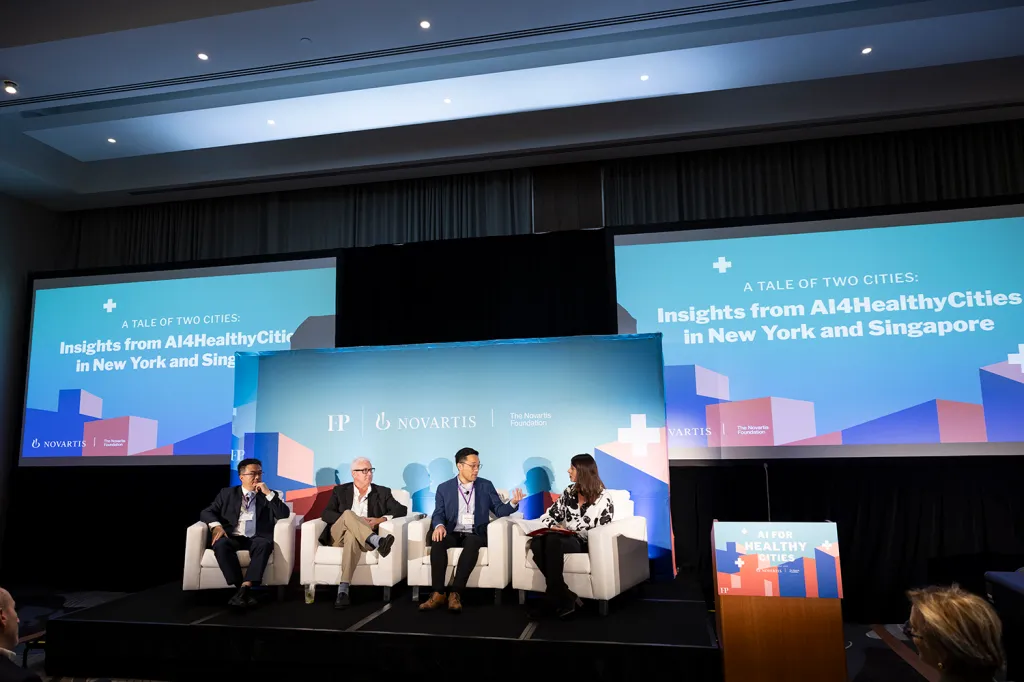
Participants
Dr. Bill Weeks, Director, AI for Health Research, Microsoft
Dr. Yongkang Zhang, Assistant Professor, Population Health Science, Weill Cornell Medicine NYC
Dr. Derek Hausenloy, Executive Director, CADENCE
Moderated by Allison Carlson, Executive Vice President, Foreign Policy
Key Takeaways
- Precise interventions facilitate both impact and return on investment. While the merits of targeting those most at risk for cardiovascular disease are clear, there is also a compelling economic argument for investing in precision population health. Microsoft’s Dr. Bill Weeks highlighted that with better access to data, policymakers and program implementers can more effectively target resources and investments to interventions that are likely to have greater and more sustainable health outcomes.
- Quantitative data still needs to be supported by qualitative context. As the amount of available data increases exponentially, and predictive analytical capabilities proliferate, it remains important to routinely ground quantitative information with tangible interactions with patients and people-centered policy. As Cornell’s Dr. Yongkang Zhang noted, it remains vital to ask stakeholders in each community, “Do you think what we found is consistent with your experience in this community?” and to have qualitative data further inform the analysis.
- Advanced analytics can unlock an untapped world of data for cardiovascular health and beyond. Research in New York City and Singapore highlights that cities often possess a wealth of data that, while seemingly unconnected to health outcomes, can provide powerful insights regarding the contributors and the kinds of interventions that not only address health challenges but prevent them. As Dr. Derek Hausenloy pointed out, programs like Singapore’s Healthier SG, which focuses on preventative measures to combat non-communicable diseases, can apply research from AI4HealthyCities across other disease types and align targeted health responses to address multiple diseases at once.
From Insights to Action: Using Data and AI for Precision Population Health
Armed with increasingly powerful tools to integrate and analyze data, governments and health practitioners can strengthen and focus the impact of health interventions across a variety of contexts. Finland and Qatar, for example, are known for their well-resourced health care systems, extensive data collection (such as Finland’s Kanta Services and Findata), and increasingly sophisticated interfaces for working with data, resources that Helsinki brings to the AI4HealthyCities initiative. However, for emerging technology to have truly global relevance and impact, these tools will need to be adopted and tailored to work for high- and low-income states alike. The concept of precision population health — tailoring health responses to specific sub-groups while maximizing impact and lowering costs—depends on the ability to harness disaggregated data and apply relevant insights to other contexts. This is especially important as it relates to the ability to apply research insights from relatively wealthy countries to low-and-middle-income countries that have varying socio-economic and environmental factors contributing to health outcomes. Applying lessons-learned to international contexts will require a global ecosystem that fosters data sharing and ongoing communication among research, policymakers, and practitioners. It will also require capacity-building resources, multi-sector partnerships, and further innovation to scale. Applying insights and tailoring interventions appropriately will be key, particularly considering that, today, as many as a billion people worldwide access health care at facilities with no or intermittent electricity. According to Dr. Hilal Lashuel, such work needs to center on “co-development, co-creation, and equal partnership.”
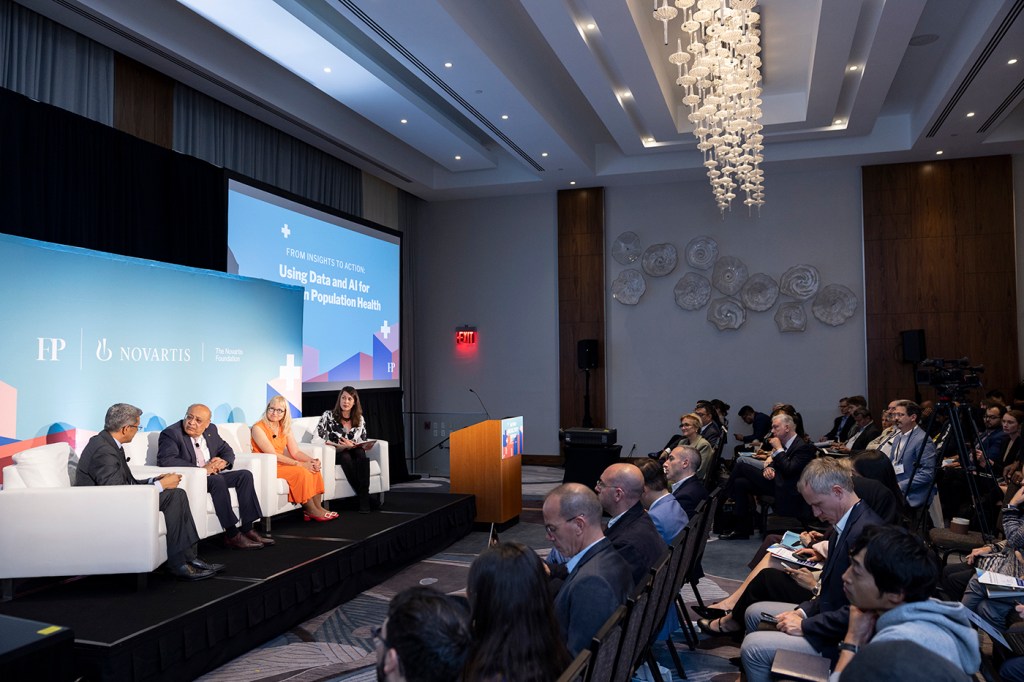
Participants
Dr. Hilal Lashuel, Qatar Foundation
Ambassador Päivi Sillanaukee, Special Envoy for Health and Wellbeing, Finland Ministry of Social Affairs and Health of Finland
Dr. Jagat Narula, President-Elect, World Heart Federation
Moderated by Allison Carlson, Executive Vice President, Foreign Policy
Key Takeaways
- Global North-South collaboration is necessary to unlock the full potential of data and AI in health. While AI and big data in health may be the purview of a small collection of relatively wealthy cities and states today, unlocking the full potential of these emerging technologies will require solutions adapted to fit resource-constrained contexts around the world. These may include using mobile phone networks for data collection, analyzing data over low bandwidth, and sharing resources across borders, including in leading and training implementers. Concepts like “cloud computing for all” may help bridge the gap in access to technical resources. At the same time, the lessons learned across these contexts will be essential to improving health interventions and fully mapping the determinants of cardiovascular health. In the words of Dr. Hilal Lashuel, “when it comes to data integration and AI, it’s all about collective brainpower.”
- Effective health care solutions depend on people-centered care. The panelists collectively highlighted the imperative for better, person-focused data as the foundation for effective health care, particularly as it relates to understanding the social determinants of health. This work should focus on transitioning health systems from being largely reactive to being predictive, proactive, and preventive. Speakers highlighted the potential for all-in-one data access that can mesh multi-omics alongside social, environmental, and other determinants.
- Public education is vital to translate learnings into investments and behavioral change. Education was repeatedly identified as critical to translating data insights into effective health interventions. While big data is helping health experts and practitioners to identify factors that are associated with, and contributing to, problematic health-related hotspots, interventions will be hamstrung unless insights can be communicated clearly and effectively with policymakers, public health officials, communities, and individuals to inform investments and support behavioral change to foster disease prevention, healthy lifestyles, and wellness.
Looking Ahead
Collectively, the speakers across research, policy, practice, and philanthropy emphasized the potential of city-level interventions, and precision population health to transform public health outcomes. Initiatives like AI4HealthyCities are already demonstrating how multistakeholder partnerships can leverage technology, data, and expertise to more effectively inform policy and resource allocation decisions, reduce inequities, and accelerate a shift toward precision population health. Forthcoming results from Helsinki, Basel, and Lisbon will further inform city-based interventions as well as other programs around the world. However, more work needs to be done. Cities and states that are eager to advance research and further inform population-level interventions will need to start prospectively collecting population-level data on health and health-related determinants. They will require sustained financial and capacity-building support, expanded ecosystems of cross-disciplinary experts, and more integrated data- and information-sharing platforms. The speakers and project partners welcomed collaboration in these efforts and look forward to ongoing engagement to advance the science and strengthen health outcomes.

This synthesis report was produced by FP Analytics, the independent research division of The FP Group, with support from The Novartis Foundation. FP Analytics retained control over the direction and findings of this report. Foreign Policy’s editorial team was not involved in the creation of this content.


